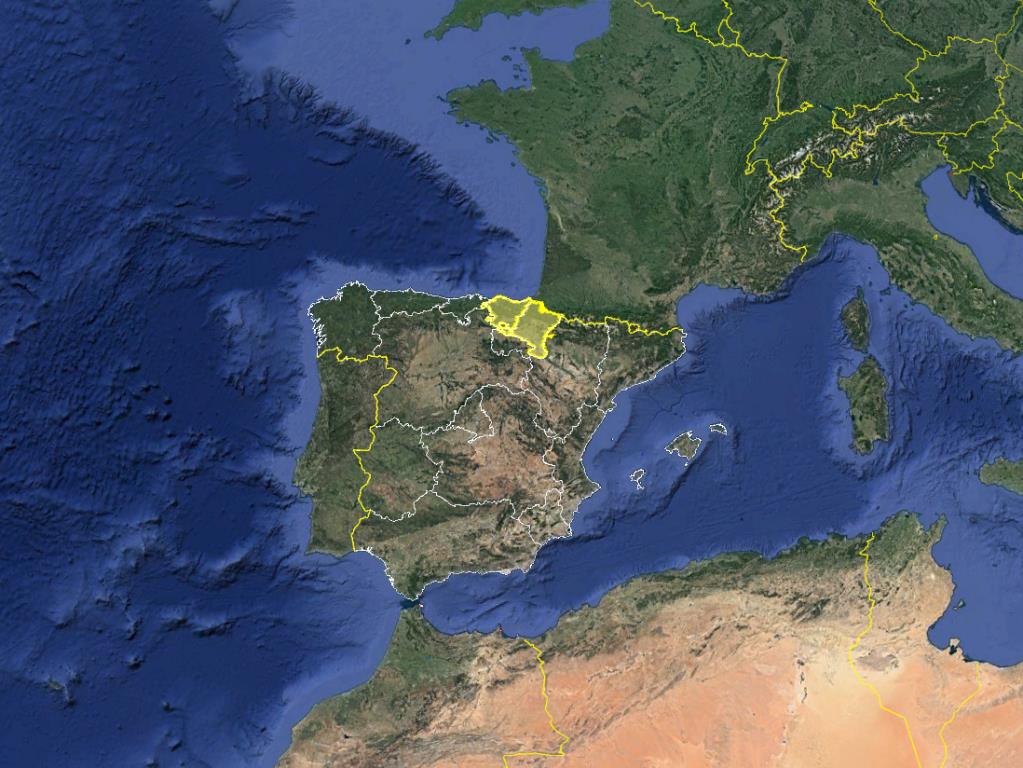Case study dilemma and research questions
How to reduce the socio-economic fragility of agro-ecological farms while maintaining environmental sustainability? This is the dilemma that ES case study attempts to address in UNISECO. In this case, farmers are already in a redesigned farming system and are already in an advanced agro-ecological stage. However, they are fragile in social and economic dimensions. Agro-ecological projects arise with little institutional support and social recognition, processing and marketing difficulties and with great personal effort. They are often islands in an important radius of kilometres. Any unforeseen economic, social or environmental change may cause a project to fall. In addition, due to this fragility, the proportion of conventional farmers who consider implementing agro-ecological practices is rather low. Therefore reducing the fragility of agro-ecological farmers is crucial to encourage the transition pathway and maintenance of AEFS.
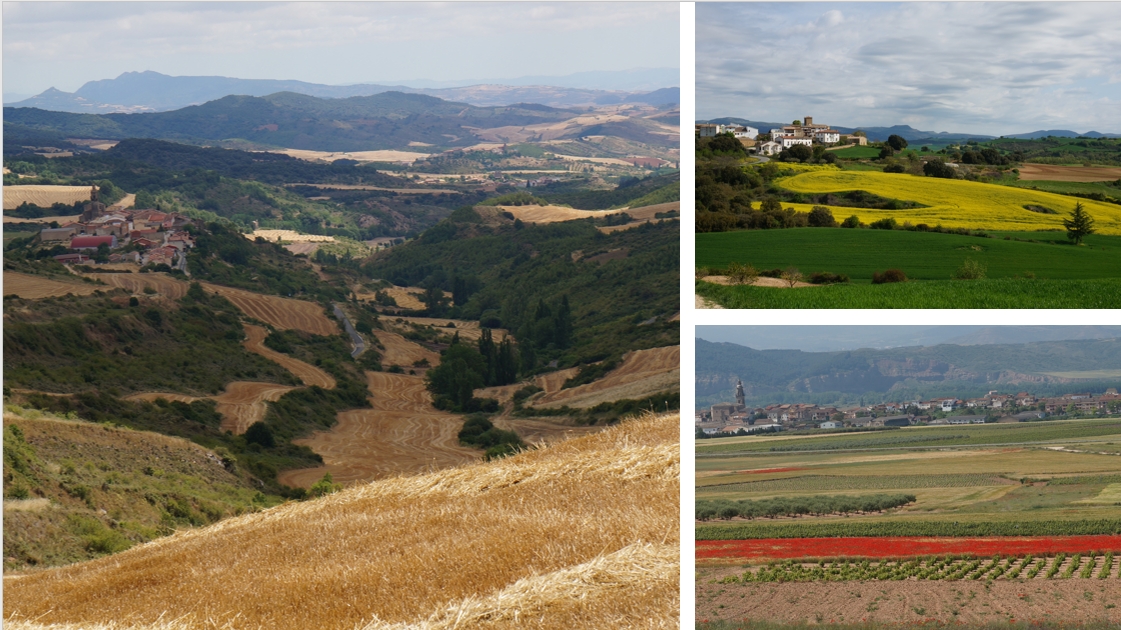
Key characteristics and sustainability issues of the farming system
The case study analyses the case of farmers belonging to the regional farmer association of EHKO, which is present in the areas of the Basque Country and Navarra. These farmers are characterized by being small sized farms under organic production, with diversity of crops, commercialization at local level with short marketing channels and principles of solidarity economy. Therefore, this case study provides an example of farmers working with all pillars of sustainability at the same time (e.g. implementing agro-ecological practices on their farms, linking their production to consumers and carrying out collective approaches for common issues’ resolution). However, the performance assessment of these farms carried out in UNISECO with the application of DST tools (SMART, COMPAS and CFT) shows that they have a good performance in terms of environmental sustainability, but there is room for improvement in social and economic indicators. In particular, it is in the post-harvest phase when farmers encounter the most difficulties due to processing and marketing problems.
Key actors involved
- Farmers and agri-food value chain: agro-ecological farmers; local value chain companies of organic products; end user companies of organic products (local caterers, groceries and others); farmers unions of the regions of the Basque Country and Navarra.
- Consumers: local consumer associations of organic products.
- Authorities and administration: governments of the regions of the Basque Country and Navarra (NUTS 2); public companies involved in the sector of agriculture; city councils of the regions of the Basque Country and Navarra (LAU 2).
- Science, innovation, advisory, capacity building: certification bodies for organic agriculture; private consultants and advisory companies in the agro-ecological sector; education centres (schools and universities) with agricultural training.
- NGOs, civil society organisations, local community representatives: regional cross-border association of agro-ecological farmers and citizens (EHKO association); environmental and food related NGOs.
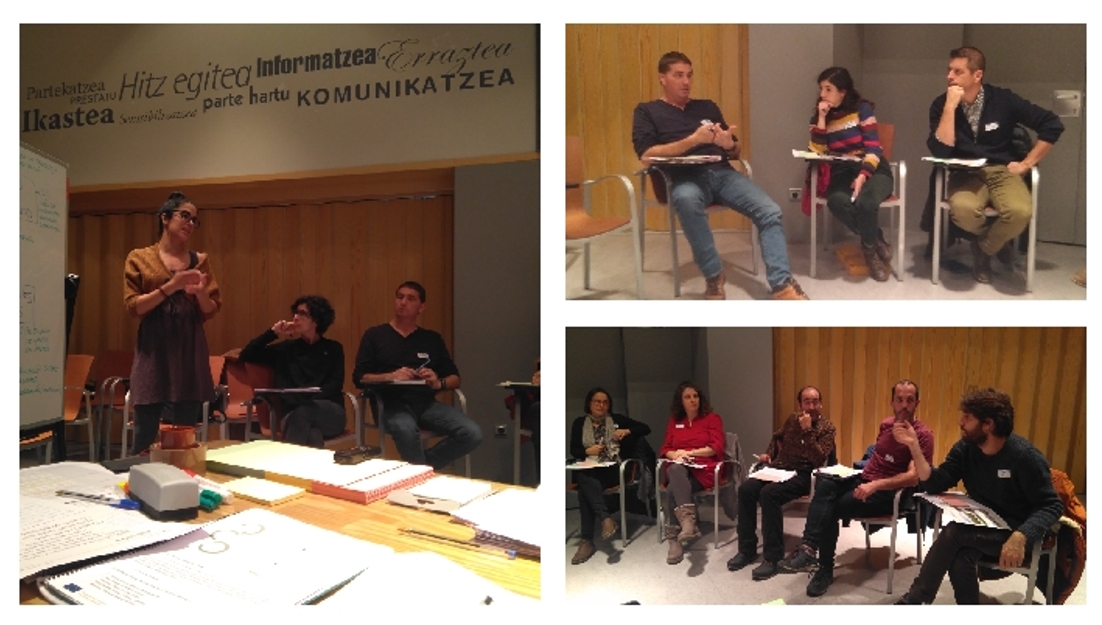
Agro-ecological practices and sustainability trade-offs
The farmers that belong to EHKO association already implement agro-ecological practices at farm management level, with a successful result in terms of environmental performance. That is why, instead of searching the best agro-ecological practices for conversion, ES case study focuses on the strategies that could strengthen the social and economic dimensions. Three are the strategies identified as potentially positive to improve socioeconomic sustainability of agro-ecological farming systems in Navarra and Basque Country:
- Strategy 1 - Strengthening of farmer networks
- Strategy 2 - Structuring agro-ecological market for small organic farmers
- Strategy 3 - Improving farmers access to land
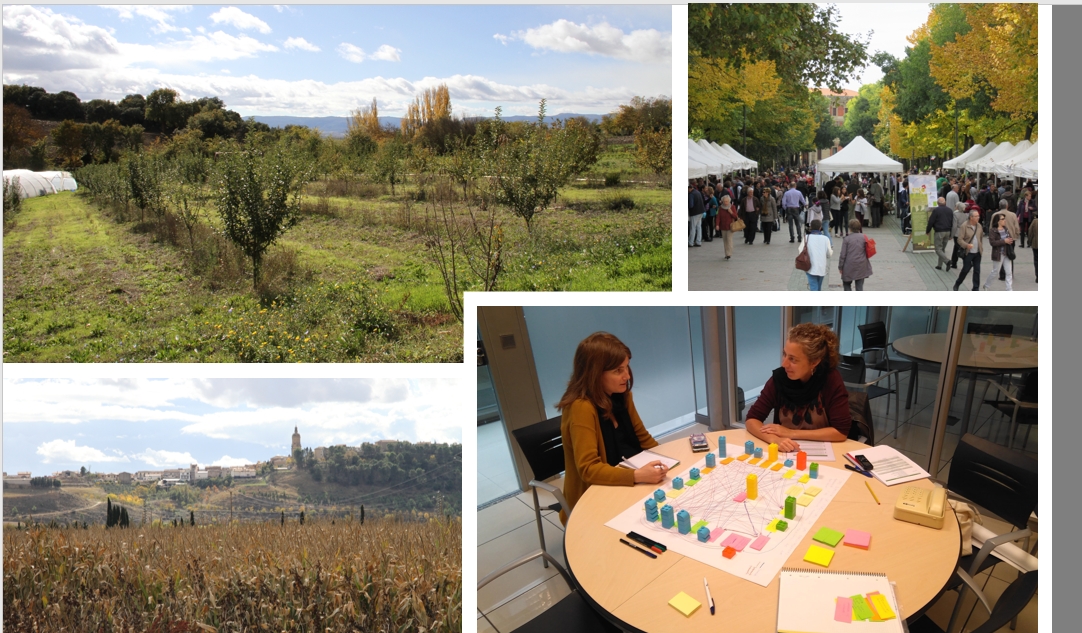
Key barriers of implementation
Key barriers of implementation of those three strategies are:
- Social (institutional): lack of time for farmers to participate in collective actions; weakness of collectivism and cooperative principles in civil society.
- Technological / Knowledge: lack of technical/business knowledge and insufficient public support for innovation and advisory services.
- Economic: lack of financial support for investment; weak eco-cooperatives and lack of machinery and infrastructure, problems to carry out post-harvest activities individually.
- Policy-related: bureaucracy of policy support, lack of regulatory flexibility and regulation of land banks corresponding to each municipality (It makes a regional strategy difficult).
Key actions to overcome barriers
The key actions or initiatives in the ES CS to achieve the three strategies and so overcome barriers are nine, three per each strategy:
Strategy 1 - Strengthening of farmer networks, the following key initiatives are point out: creation of a substitution service that replaces farmers in the field while they accomplish tasks of participation in groups; facilitation of peer-to-peer mentoring for farmers in their first years; creation and support of formal and informal farmers’ networks.
Strategy 2 - Structuring agro-ecological market for small organic farmers, the following processing and commercialization initiatives highlight: creation of collection and sale centres for small organic farmers; creation of small organic farmers groups for the transformation of products, to share machinery and infrastructure; and launching public procurements for the purchase of food with criteria of organic production, proximity and temporality, which would guarantee a stable demand of organic.
Strategy 3 - Improving farmers access to land, the following actions are remarkable: application of territorial management contracts; creation of regional land banks; and creation of private and public investment groups or funds for small-sized organic farmers.
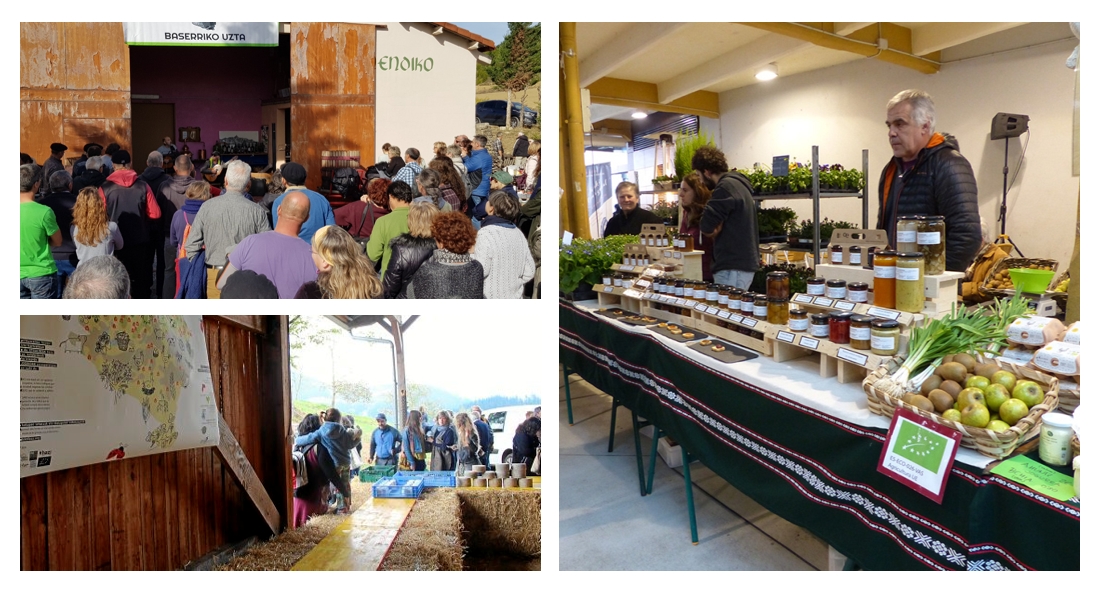
Key lessons learnt
- Transition strategies should address the fragile social and economic sustainability in order to maintain and scale up advanced agro-ecological farming systems in northern Spain.
- Agro-ecological transition needs a basis of cooperation or collaboration. To be more effective, initiatives should be proposed by farmers themselves, following a bottom-up approach to respond to the actual needs of the sector.
- Farmers and other actors need to associate and create networks and coordination structures to develop agro-ecological market and offer to a growing consumer demand a more complete and varied option of local and organic food.
Download
- UNISECO H2020 policy brief: Supporting the development of an agro-ecological market through Measure 16.2 of the Rural Development Program (RDP) in Navarra
- UNISECO H2020 policy brief: Apoyar el desarrollo del mercado agroecológico en Navarra (España) a través de la Medida 16.2 del Programa de Desarrollo Rural (PDR)
- UNISECO H2020 issue brief: Farmers' cooperation and networks, a key driver for the transition to agro-ecological farming systems in Navarra and the Basque Country
- UNISECO H2020 issue brief: Cooperación y redes de productores, un impulsor clave de la transición hacia la agroecología en el País Vasco y Navarra (España)
- How to reduce the socio-economic fragility of agro-ecological farms in Navarra and the Basque Country (Spain)? - poster in English
- Proyecto UNISECO - article in Spanish
- Issue Brief: Farmers' cooperation and networks, a key driver for the socio- conomic sustainability of agro-ecological farming systems
- Policy Brief: Supporting the development of agro ecological market through Measure 16.2 of the Rural Development Program (RDP)
Videos
Related newsitems
https://uniseco-project.eu/news/94/es-case-study-workshop-on-co-construction-of-transition-management-strategies
https://uniseco-project.eu/news/58/es-case-study-workshop-on-assessing-policy-and-market-initiatives-and-evaluating-transition-drivers-and-barriers
AGRO-ECOLOGICAL FARMING SYSTEMS IN THE BASQUE COUNTRY AND NAVARRA
